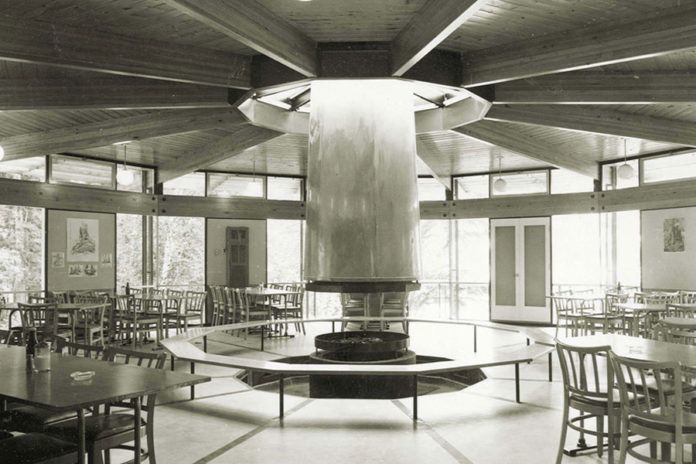The University of Saskatchewan (USask) is relocating 22 cabins from the currently-shuttered Emma Lake Kenderdine Campus to assist an Indigenous community in need of additional housing during the COVID-19 pandemic.
The relocation of 22 cabins, along with the demolition of the dining hall was confirmed in an emailed statement attributed to Wade Epp, associate vice president, services of the university.
Montreal Lake Cree Nation asked about the buildings in late March. The nation had closed its borders to reduce the spread of COVID-19. The USask Board of Governors approved the request on March 30.
Epp added that Montreal Lake will be taking down the dining hall “a building which is no longer meeting safety standards.”
Epp said the cabins moved aren’t of historical interest to the university and don’t have permanent foundations, making them easier to move and retrofit to meet urgent basic housing needs during the pandemic.
“The 22 cabins are structurally sound, but not currently winterized, with Montreal lake aware of their condition and planning to alter the buildings as required for the upcoming months,” Epp said.
As for the future of the campus, the USask board discussed a proposal on March 23 to prepare for the future development and re-opening of a re-imagined Kenderdine campus.
That vision “would require decommissioning of some of the buildings on-site in a sustainable way, and reclamation of the property to ensure public safety,” Epp said.
“With the urgent need of additional housing in Montreal Lake Cree nation, the university quickly moved to donate the 22 cabins.”
The Kenderdine Campus at Emma Lake opened as a summer art school at Murray Point in 1936 led by painter Gus Kenderdine, the first artist-in-residence hired at a Canadian University.
Past students include figures who were key to the development of Saskatchewan’s art community, including McGregor Hone, Wynona Mulcaster and Reta Cowley.
The university bought the site from the province in 1968. It was renamed the Kenderdine Campus after Gus in 1989. It became known for its focus on arts and ecology activities while housing and influencing artists from around the world.
It was temporarily closed in 2012.
IN 2015, the university issued a request for proposals to find someone interested in a business opportunity to develop a meeting and lodging facility at the campus in exchange for some access and a long-term lease on the land. Desired used in the RFP included teaching, learning and research in areas such as biology, soil sciences, art and art history and music. The university also asked for space for studio arts, teaching and learning spaces that accommodate up to 40 people.
The proposal considered by the USask board on March 23 comes following “extensive consultation and feasibility studies,” Epp said.
“While the plan to re-establish the Kenderdine facility is currently under review, the university remains firmly committed to re-opening the campus in the future at the current location to begin a new chapter in its history.”
Consultations are continuing and the university is exploring funding options, reimagined site plans and programming possibilities “That will advance … values of connectivity, collaboration, creativity and reconciliation.”
The university is working with artistic, academic and Indigenous communities to develop a concept to reopen the campus as a place where community and university meet, gather, share and thrive, Epp said.
“The concept is deeply rooted in the Emma Lake Kenderdine Campus core characteristic of connectivity, with direct relevance to the campus’ natural setting,” he said.
“The renewed campus will provide a safe gathering place conducive to thoughtful discussion, active learning and the inspired collision of diverse ideas – a year-round place to connect cultural, artistic and academic interests in order to advance provincial, national and international scholarship in reconciliation while strengthening partnerships with local communities in the area.”
There have been suggestions that the Kenderdine Campus might be next on the university’s list after the opening of the Prince Albert campus, set for this fall.
During an event held last year to promote the new campus, Mayor Greg Dionne said University of Saskatchewan President Peter Stoicheff had indicated he was interested in reopening the campus.
The university indicated that plans for the Emma Lake location were still high level and any decision as to its future was still a long way off.


